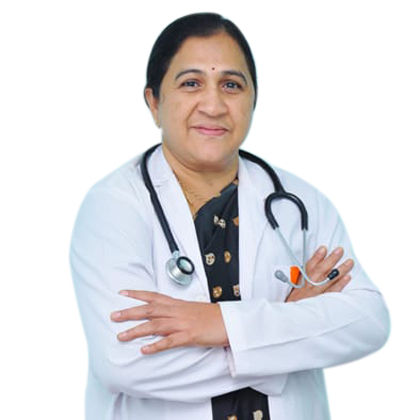Oligomenorrhea: Understanding Causes and Treatment
Discover oligomenorrhea, its causes, symptoms, and treatment options. Learn how irregular menstrual cycles affect reproductive health and the ways to manage the condition.


Oligomenorrhea is a condition where a woman experiences infrequent menstrual periods, typically with cycles longer than 35 days (fewer than 6-8 periods per year). While occasional irregular periods can be normal, persistent oligomenorrhea may indicate an underlying health issue that needs attention.
If you notice your periods are becoming irregular or spaced far apart, it’s important to understand the possible causes and seek medical advice if needed.
Symptoms of Oligomenorrhea
The main symptom is having fewer periods than usual. Other signs may include:
• Long gaps between periods (more than 35 days)
• Unpredictable cycles (difficulty tracking periods)
• Heavier or lighter bleeding when periods do occur
• Difficulty getting pregnant (if ovulation is irregular)
• Associated conditions like acne, excess hair growth, or weight changes
Consult a Top Gynecologist
Common Causes of Oligomenorrhea
Several factors can contribute to irregular periods:
1. Hormonal Imbalances
• Polycystic Ovary Syndrome (PCOS) – A common hormonal disorder affecting ovulation.
• Thyroid disorders – Both hypothyroidism (underactive thyroid) and hyperthyroidism (overactive thyroid) can disrupt periods.
• Prolactin imbalance – High levels of prolactin (a hormone that regulates milk production) can interfere with menstruation.
2. Lifestyle Factors
• Excessive exercise – Intense physical activity can reduce body fat, affecting hormone levels.
• Stress – Chronic stress impacts the hypothalamus, which regulates menstrual cycles.
• Low body weight or eating disorders – Poor nutrition can lead to hormonal disruptions.
3. Medical Conditions
• Premature ovarian insufficiency (early menopause) – When ovaries stop functioning before age 40.
• Diabetes or insulin resistance – Affects hormone regulation.
• Pelvic inflammatory disease (PID) – Infections that may impact reproductive health.
4. Medications & Birth Control
• Hormonal contraceptives (pills, IUDs) can alter menstrual patterns.
• Certain medications (like antipsychotics or chemotherapy) may affect periods.
How Oligomenorrhea Affects Health
While occasional irregular periods may not be harmful, long-term oligomenorrhea can lead to complications:
• Infertility – Irregular ovulation makes conception difficult.
• Endometrial hyperplasia – Thickening of the uterine lining due to infrequent shedding, increasing risk of uterine cancer.
• Bone health issues – Low estrogen levels (common in PCOS or menopause) can weaken bones.
Diagnosis & When to See a Doctor
If you experience:
• Fewer than 6-8 periods a year
• Sudden changes in your cycle
• Difficulty getting pregnant
• Other symptoms like acne, hair growth, or weight changes
A doctor may recommend:
• Blood tests (hormone levels, thyroid function, blood sugar)
• Pelvic ultrasound (to check for PCOS or ovarian cysts)
• Prolactin or insulin resistance tests
Need help? You can consult a gynecologist on Apollo 24|7 for personalized advice.
Get Your Health Assessed
Treatment & Management
Treatment depends on the underlying cause:
1. Lifestyle Changes
• Maintain a healthy weight – Both obesity and extreme weight loss can affect periods.
• Balanced diet – Include whole grains, lean proteins, and healthy fats.
• Reduce stress – Yoga, meditation, and adequate sleep help regulate hormones.
• Moderate exercise – Avoid excessive workouts that disrupt menstrual cycles.
2. Medications
• Hormonal birth control (pills, patches) to regulate cycles.
• Metformin (for PCOS-related insulin resistance).
• Thyroid medication if hypothyroidism is the cause.
3. Fertility Support
If trying to conceive, treatments like ovulation-inducing drugs (Clomiphene) may help.
When to Seek Immediate Help
Consult a doctor urgently if you have:
• No periods for over 3 months (unless pregnant or menopausal)
• Severe pelvic pain
• Unusual bleeding or spotting
Final Thoughts
Oligomenorrhea is often manageable with the right diagnosis and care. If irregular periods are affecting your life, don’t hesitate to seek medical advice. Early intervention can prevent complications and improve overall health.
Consult a Top Gynecologist
Consult a Top Gynecologist

Dr. Parul Sharma
Obstetrician and Gynaecologist
8 Years • MBBS, MS (Obstetrics & Gynaecology)
New Delhi
THE DOCTORS NESST, New Delhi

Dr. Asha Rani Singh
Obstetrician and Gynaecologist
24 Years • MBBS DGO
Delhi
Dr Asha Rani Singh Clinic, Delhi
Dr. K Anusha
Obstetrician and Gynaecologist
4 Years • MBBS, DGO
Yemmiganur
SRINIVASAA HOSPITAL, Yemmiganur

Dr. Shyamala Devi
Obstetrician and Gynaecologist
38 Years • MBBS, MS Obstetrics & Gynaecology
Vijayawada
Sri Shivshakti Nilayam, Vijayawada

Dr. Sridevi Matta
Obstetrician and Gynaecologist
28 Years • MS ( OBG ), DGO, DNB Obstetrics & Gynaecology
Chinagadila
Apollo Hospitals Health City Unit, Chinagadila
(175+ Patients)
Consult a Top Gynecologist

Dr. Parul Sharma
Obstetrician and Gynaecologist
8 Years • MBBS, MS (Obstetrics & Gynaecology)
New Delhi
THE DOCTORS NESST, New Delhi

Dr. Asha Rani Singh
Obstetrician and Gynaecologist
24 Years • MBBS DGO
Delhi
Dr Asha Rani Singh Clinic, Delhi
Dr. K Anusha
Obstetrician and Gynaecologist
4 Years • MBBS, DGO
Yemmiganur
SRINIVASAA HOSPITAL, Yemmiganur

Dr. Shyamala Devi
Obstetrician and Gynaecologist
38 Years • MBBS, MS Obstetrics & Gynaecology
Vijayawada
Sri Shivshakti Nilayam, Vijayawada

Dr. Sridevi Matta
Obstetrician and Gynaecologist
28 Years • MS ( OBG ), DGO, DNB Obstetrics & Gynaecology
Chinagadila
Apollo Hospitals Health City Unit, Chinagadila
(175+ Patients)


